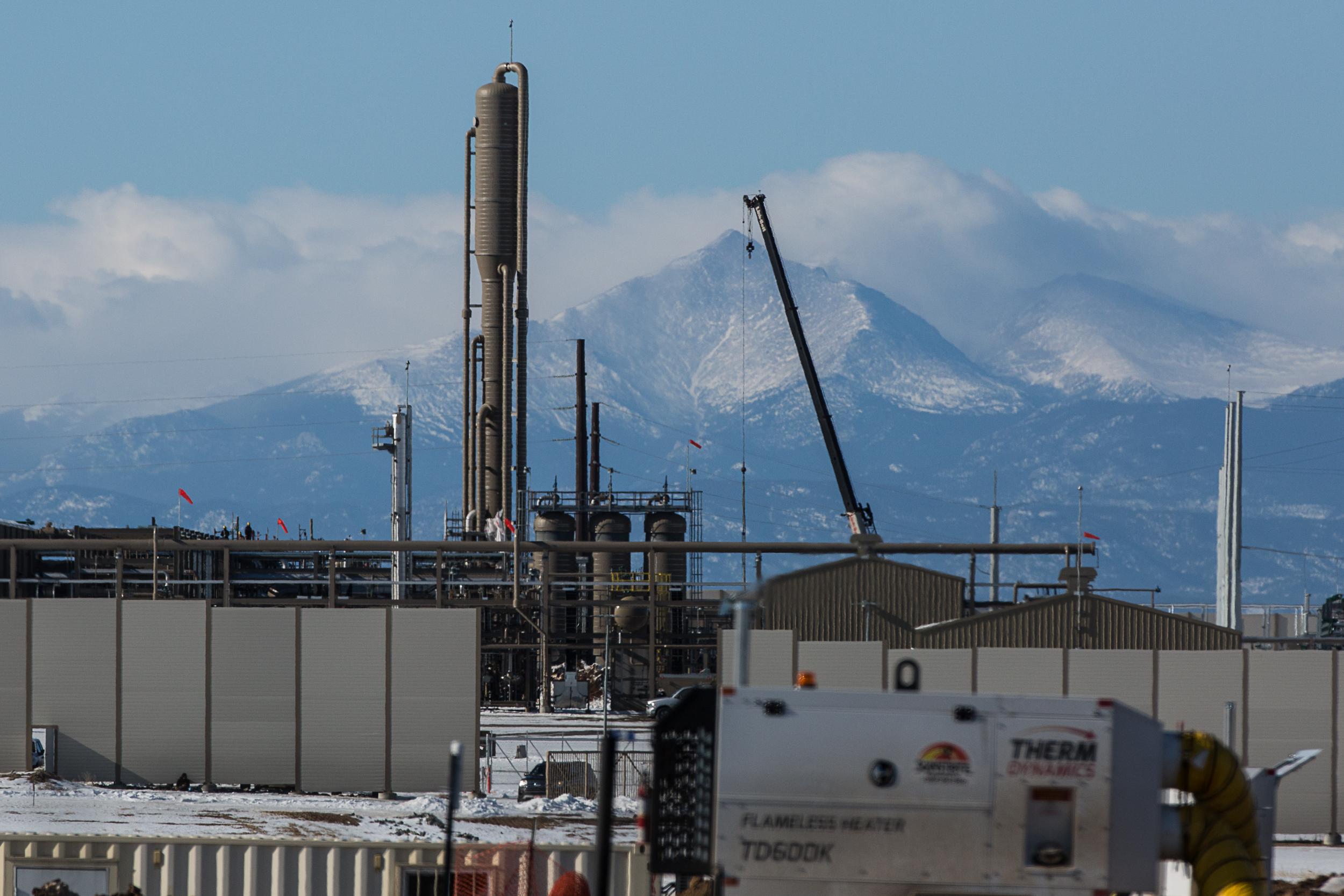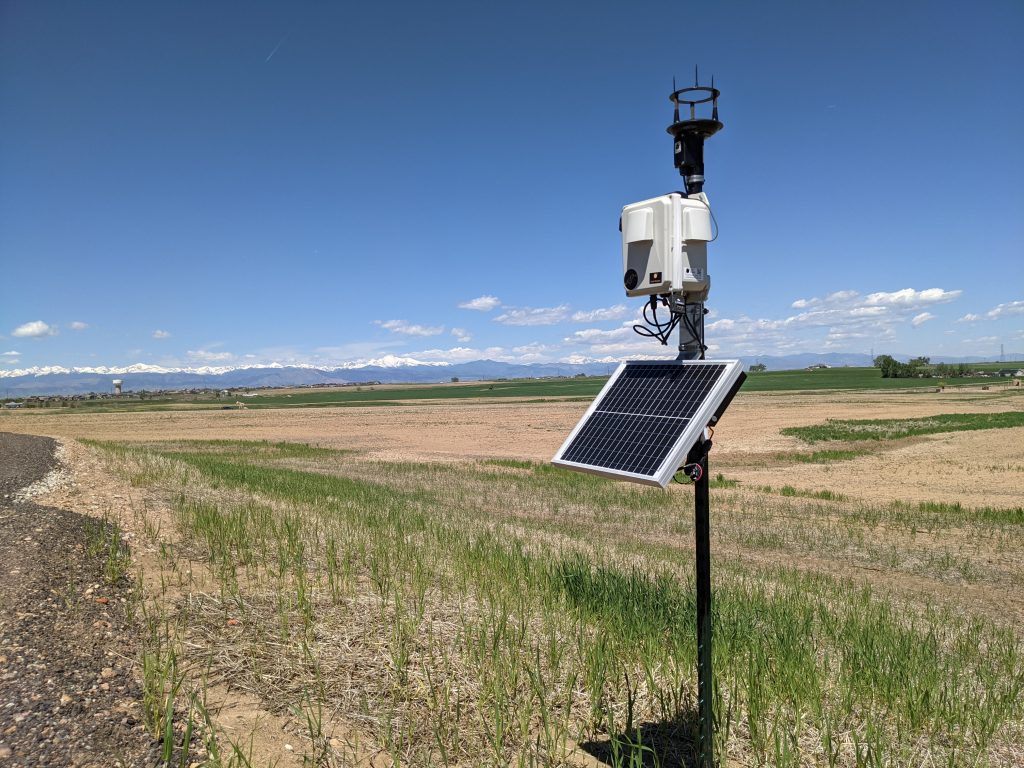
For anyone concerned about the environment, labels can be a quick way to ease a guilty conscience. A “certified organic” logo promises food untouched by synthetic pesticides. A “fair trade” label is meant to ensure the workers behind a product have good wages and working conditions.
Chris Romer, the CEO and co-founder of Project Canary, is now applying the same strategy to fossil fuels. His company monitors emissions from natural gas operations and certifies the final product as “responsibly sourced.”
“Just because it’s fossil fuel doesn’t mean it’s all the same carbon footprint,” Romer said. “That’s what we’re evangelizing on.”
Project Canary is one of a handful of new efforts working to certify the most environmentally responsible natural gas producers. The target audience is a new class of climate-concerned customers and investors who pore over corporate sustainability reports to find the best place for their money.
There’s little question natural gas companies offer an opportunity for emissions reductions. The fuel is primarily methane, a potent greenhouse gas that can escape during the production and distribution process. A recent United Nations report found rapid efforts to stop those leaks could be critical to meeting international climate goals.
It also noted humanity almost certainly can’t meet those goals while expanding natural gas use.
That second finding is what worries some environmentalists about Project Canary. Duncan Gilchrist, a climate policy analyst with 350 Colorado, said there is no way to label natural gas production as “responsible.” He fears doing so will only delay a necessary energy transition.
“This just equates to a kind of re-brand,” Gilchrist said.
Romer doesn’t take accusations of "greenwashing" lightly.
“Candidly, it’s B.S.,” he said.
As Romer sees it, oil and gas drilling isn’t going to disappear tomorrow. The question is how it’s produced while the industry winds down. He said Project Canary offers the assurance operators are using the best environmental practices possible.
As an example, he offered a tour of a well pad near Firestone, Colorado, operated by Crestone Peak Resources. The oil and gas company hired Project Canary to review its environmental practices and set up 24/7 pollution monitors around its Colorado production sites. Romer pointed to the white boxes with solar panels posted around the perimeter, which he said worked like “smoke detectors” in the event of a methane leak.

Neither the testing nor the certification is required by law. Jason Oates, the Crestone Peak vice president for government affairs and public relations, said the air monitors were installed to prepare his company for the eventual transition away from fossil fuels.
“When you turn off the last spigot of oil or natural gas, we want it to be a Crestone location, just because of the way we do it,” Oates said. “You want to start with the dirtier ones first and work your way to the cleanest.”
The move has already won an early endorsement from Xcel Energy. Last month, Colorado’s largest power provider announced it would launch a pilot project to purchase Canary-certified natural gas from Crestone Peak.
A press release announcing the partnership noted Xcel was the first major U.S. utility to commit to 100 percent carbon-free electricity by 2050. What it didn’t mention is the company has additional plans to build new natural gas power plants in Colorado.
In an emailed statement, Michelle Aguayo, an Xcel spokesperson, said the new gas plants will help the utility supply reliable power even as it adds solar and wind generation to the electric grid. Until a “zero-carbon” replacement like hydrogen becomes available, the pilot project will help make sure the natural gas it purchases comes from companies “using best practices to lower emissions,” Aguayo said.
It’s just the sort of announcement investors could be watching closely.
Some of the world’s largest money managers, like BlackRock, now want companies to detail their plans to adapt to climate change. The pressure on oil and gas companies may have reached a breaking point last week. In a single day, shareholders voted to force Chevron to accelerate its plans to reduce emissions as similar concerns prompted the election of two new board members at ExxonMobil.
Project Canary is not the only effort to evaluate corporate efforts to achieve those reductions. Dan Zimmerle, the director of methane emissions research at Colorado State University, said there are at least five efforts to certify companies based on their climate efforts.
“It’s almost like the early days of organic food,” Zimmerle said. “You need to be a little bit skeptical about how ‘organic’ organic is.”
While those certificates are still in their infancy, Zimmerle said Project Canary could be more transparent by detailing how it arrives at grades through its TrustWell certification process. The system grades operators as standard, silver, gold or platinum according to a range of environmental metrics.
RMI, a clean energy think tank formerly known as the Rocky Mountain Institute, plans to offer an alternative method with its upcoming MiQ grading system. Lara Owens, the project manager, said the criteria for a certificate would be public and open source. An oil and gas company could then hire a third-party auditor to grade how well it has safeguarded against methane leaks.
“The problem with these black box, Canary-type certifications is there is really no transparency or third-party verification,” Owens said.
Romer, the Project Canary CEO and co-founder, said his company does subject itself to outside scrutiny. The Payne Institute for Public Policy at the Colorado School of Mines reviews data from its emissions sensors before it’s sent to oil and gas operators. He also said his company encourages its partners to share data on environmental impacts.
On the whole, he said Project Canary is about helping companies understand their role in global warming.
“It’s the most famous saying in all of business management: you can’t improve what you can’t measure,” Romer said.









